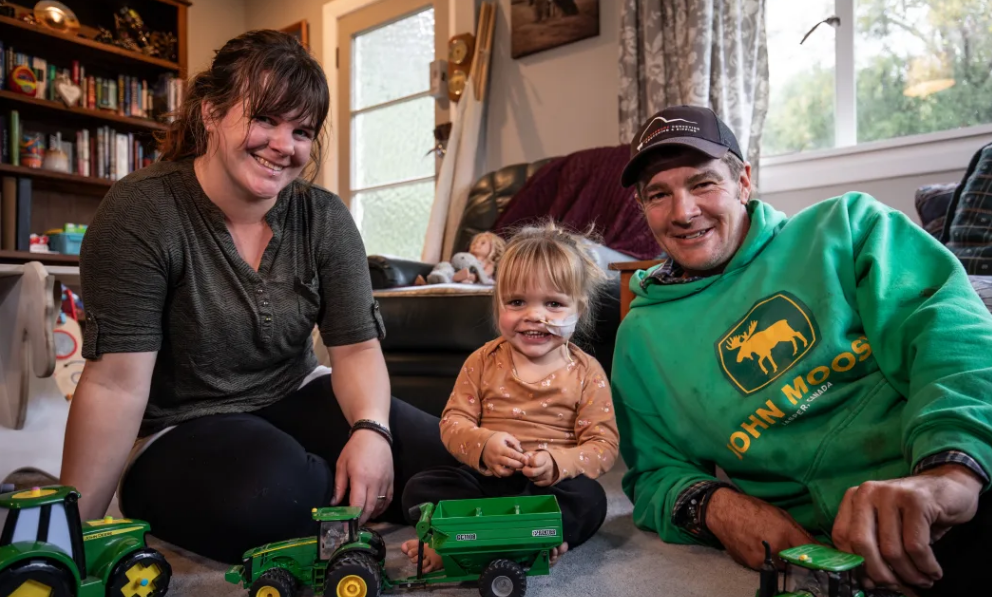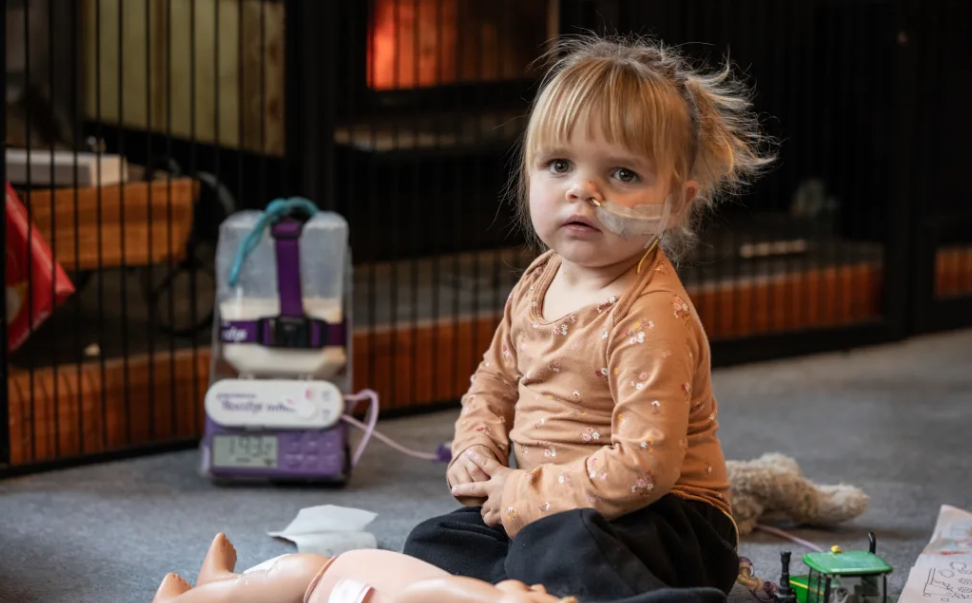A three-year-old Canterbury girl who has home dialysis to stay alive had four machines fail in one week - and there is no back-up option in the South Island.
Her mother Emily Cromie said regularly failing equipment made a difficult job "horrendous" at times and she wanted change for other rural families.
Harper Cromie, from Glenroy near Darfield, led a relatively normal life by day as a bubbly, sassy girl who made friends with everyone, Emily said.
But at night she slept hooked up to a dialysis machine because of a rare and very aggressive form of kidney disease.
Like many preschoolers, she was a wriggly sleeper so often knocked cords and set off the machine's alarms.
It was exhausting for Emily and Nic, who are farmers, but caring for Harper was made much harder by the regularly-breaking machines which could only be sent from Auckland, Emily said.
"They should be condemned, the lot of them. They fault constantly. It is disgusting that they are even in service if they are this unreliable," she said.
Looking after Harper was a stressful, round-the-clock job, especially for Emily.
"I'm the one that has to technically hurt her. Injections, putting her nasal gastric tube down into her stomach. It's horrible, I hate it, it makes me cry every time," Emily said.
"Harper doesn't know. She looks at me and says, 'I'm sorry, I'm sorry', like I'm punishing her for something she has done wrong, which is not the case. It's just so hard."

As they dealt with all that, Emily and Nic often felt they were on their own when it came to the health system.
The doctors and nurses who looked after Harper when she went to hospital were wonderful but much of her care was at home and made harder because they were rural, Emily said.
There were no back up machines like the ones Harper used in any South Island hospital if things went wrong.
Kilos of medical supplies also had to be sent down from Auckland but were often delayed or waylaid.
Emily looked at funding a machine herself but it was too hard, she said.
However, the family has had some good news. Harper is due to get a kidney transplant in July.
Emily, though, wanted to fight for others.
"I am aware of the ridiculous financial cuts and everything for our already failing health system but I am so determined to make sure that no parent ever has to go what we have had to."

The units were sensitive to movement which could affect how they worked and so there were always two machines delivered to patients under five, he said.
Each child has a local paediatrician, but Starship Hospital in Auckland ran the child dialysis programmed for the whole country because it was the only place with suitably trained specialist doctors and nurses, he said.
"Starship has explored having spare machines closer to patients, but they often sit unused while still requiring maintenance, and therefore are still likely to malfunction," Hector-Taylor said.
"The current approach of delivering machines and supplies directly to families continues to be the most effective way of delivering paediatric dialysis treatment."
Families could always perform dialysis manually in an emergency, he said.
However, Emily said that was very intensive and hard to do when sleep deprived when mistakes could cause complications.
Kidney Health NZ chief executive Andrew Baker said he was not surprised to hear of the challenges the family faced - many other rural patients had a tough time too.
Some, travelled four hours, three times a week to get their dialysis, he said.
He wanted community dialysis hubs created in more places to make it easier.
"We need more dialysis units, we need more chairs - so we need the infrastructure, we need more equipment, we need investment put into the funding of staff, and we need to attract those staff by paying them well," he said.















